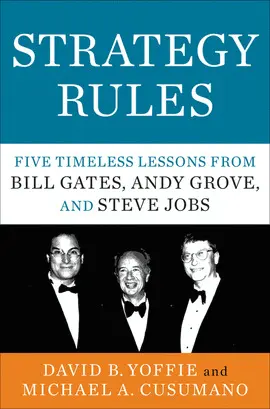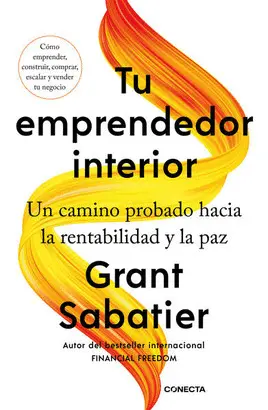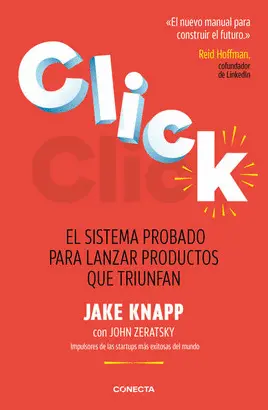- Editorial:
- HARPER
- Materia:
- Negocios y administración
- ISBN:
- 978-0-06-237395-3
STRATEGY RULES
YOFFIE, DAVID B.
The Strategic Rules of Three Giants
Bill Gates, Andy Grove and Steve Jobs have been the subjects of many books, and Gates and Grove have even written their own bestselling books. Strategy Rules, a new book coauthored by Harvard Business School professor David Yoffie and MIT Sloan School of Management professor Michael Cusumano, offers a new take on these three giants of entrepreneurship and technology by bringing them together into one how-to guide on strategy. According to Yoffie and Cusumano, the three men, although vastly different in personalities, followed the same five rules for strategy and execution:
Look Forward, Reason Back. The first rule was to look forward into the future and then reason back to the actions required today. A vision of what the world could be was only the beginning for these three men, however. Perhaps even more important was the ability of all three to determine — in detail — what needed to happen immediately to turn vision into reality.
Make Big Bets, Without Betting the Company. Gates, Grove and Jobs were bold leaders, but they were not reckless, write Yoffie and Cusumano. They knew how to time or diversify their big bets so that even huge strategic bets were not irreversible.
Build Platforms AND Ecosystems. Another important rule, the authors write, was to build platforms and ecosystems, as opposed to pursuing a product strategy. Build Platforms AND Ecosystems. Most industries think in terms of products. Technology companies, however, succeed when they build industry platforms, not stand-alone products. Bill Gates would not be among the world's richest men and Microsoft would not be the dominant company it became if Gates had sold his product — the DOS operating system — to the client that had requested it: IBM. Instead, in exchange for a much lower payment from IBM, Gates kept the right to license the system to other companies. The rest is history.
Exploit Leverage AND Power. All three men, according to the authors, could play Judo and Sumo. Judo requires using the opponent's strength. Gates, Grove and Jobs could each find a way to turn the strengths of their opponents into weaknesses. One notable example was Jobs' successful negotiation with the music companies for a license to their music. Paying little attention to the tiny company (only 2 percent market share in its own industry!), the music companies negotiated an agreement highly favorable to Apple and which would be the foundation of the iTunes revolution. At the same time, the three did not hesitate to freely use their power, once they had it, to dominate their competitors, just as a Sumo wrestler uses his pure strength to dominate his opponent.
Shape the Company Around Your Personal Anchor. Personally, the three men had vastly different strengths and interests. Gates was the software coding genius, Grove a precise engineer and Jobs a wizard at design. The companies they built reflected these strengths.
At their peaks, Microsoft, Apple and Intel were collectively worth $1.5 trillion. More than just business behemoths, however, these three companies and their founders changed the world, and our lives, in dramatic ways. Whether an entrepreneur dreaming of creating the next life-changing company or the manager of a multi-billion global company, any business leader should explore and adapt the lessons offered by the business practices of these three extraordinary business leaders.








